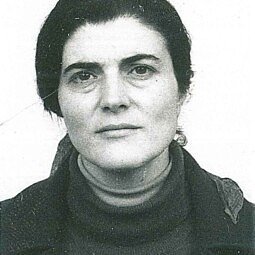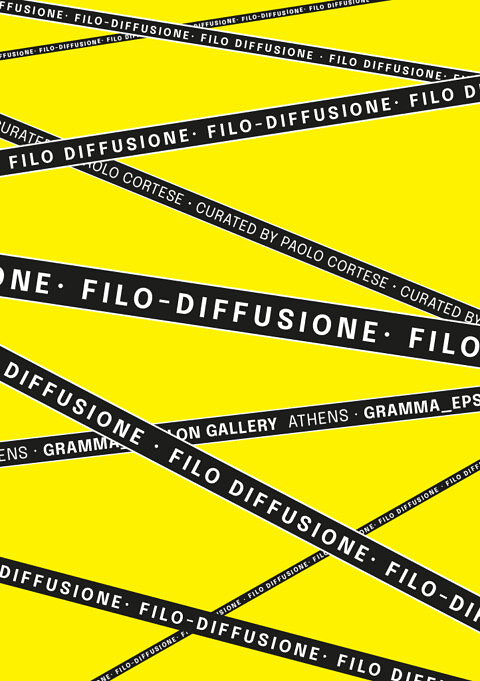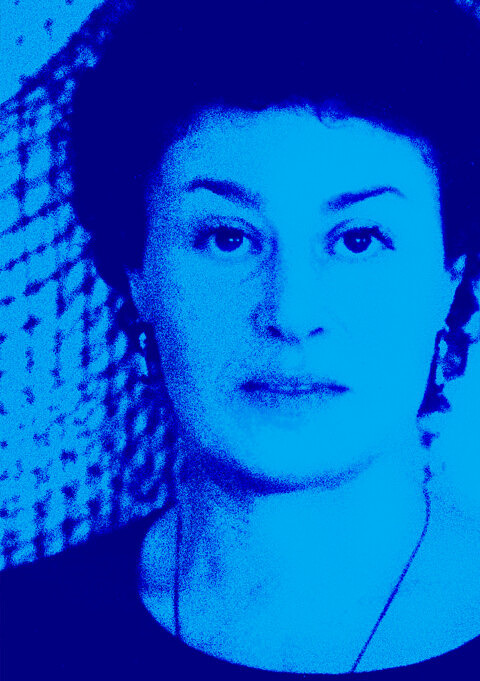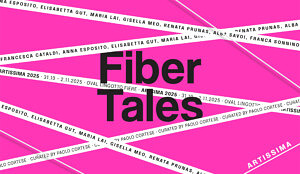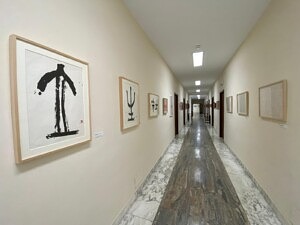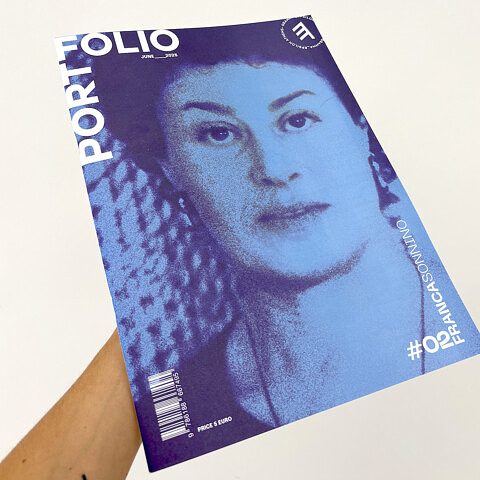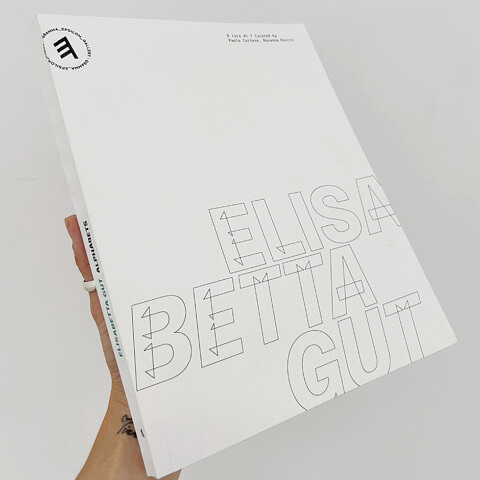Gramma_Epsilon is a female art gallery. Our aim is to connect today’s female avant-garde with the climate of experimentation and the emancipatory movements that placed women at the center and came to life in the 1960s and 1970s. We are committed to documenting the work of the women artists of that period, still little known today.
Filo-diffusione
Curated by Paolo Cortese
The project draws inspiration from the women-centred exhibitions organised by Mirella Bentivoglio in the 1980s on the theme of the thread (filo), updating and expanding that research for the present day.
The exhibition features works by well-established artists, many of whom took part in Bentivoglio’s shows more than forty years ago, alongside younger artists who have embraced and reinterpreted those same concerns, developing them in step with the passage of time and the evolution of creative tools. Beginning with a retrospective survey of the works, conceived as a necessary condition for a free and open interpretation, the project unfolds in two distinct exhibitions.
The first, Filo-diffusione_Ə (November 13, 2025 – January 31, 2026), brings together works in which the use of thread is tied to an inner search, an exploration of the archetypal dimension linked to the mater element. Across the works on display, one perceives a profound need to explore the inner universe in an effort to define an autonomous and solid identity, one that does not reject the traits historically associated with dependence, but on the contrary, through a shift in perspective, exalts and transforms them into sources of strength.
In the second exhibition, Filo-diffusione_& (February 5 – March 28, 2026), this transformation is complete. Here, the artists move freely and confidently within the realm of logos, using thread as a means to tell stories, denounce injustices and abuses, “draw the world,” and protect and preserve the realm of memory.
The division between the two exhibitions is therefore not chronological, but interpretive, based on the dialogue between the works. This distinction is echoed in the choice of symbols, the “reversed e” (Ə) and the ampersand (&), which embody inclusion and conjunction, two guiding principles of the gallery. Fittingly, Gramma Epsilon means “the letter e” in Greek.
Franca Sonnino
_The Thinking Hands
Curated by Paolo Cortese and Francesco Romano Petillo
Three years after the major retrospective held in collaboration with MUACC in Cagliari, this exhibition, curated by Paolo Cortese and Francesco Romano Petillo, offers the Athenian public a curated selection of works spanning from the early 1970s to the present. The works on display provide a clear insight into the artistic journey of the Roman artist, rightly regarded as one of the mothers of Italian Fiber Art.
In her early career, Franca Sonnino created large canvases, using acrylic and tempera totrace lines – continuous, dashed, or dotted – that intersected and overlapped, forming a dense web of patterns and grids. A few years later, she began to experiment with materials from the domestic realm most frequently associated with the feminine world, such as thread, sequins, lace, and fabric.
Over time, she moved away from canvas as a medium and thread took the place of the brush. In the very early 1980s, Franca Sonnino invented the solid thread – a cotton thread reinforced with wire – through which she began to draw her universe in three dimensions.
















